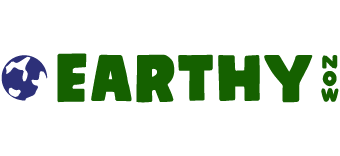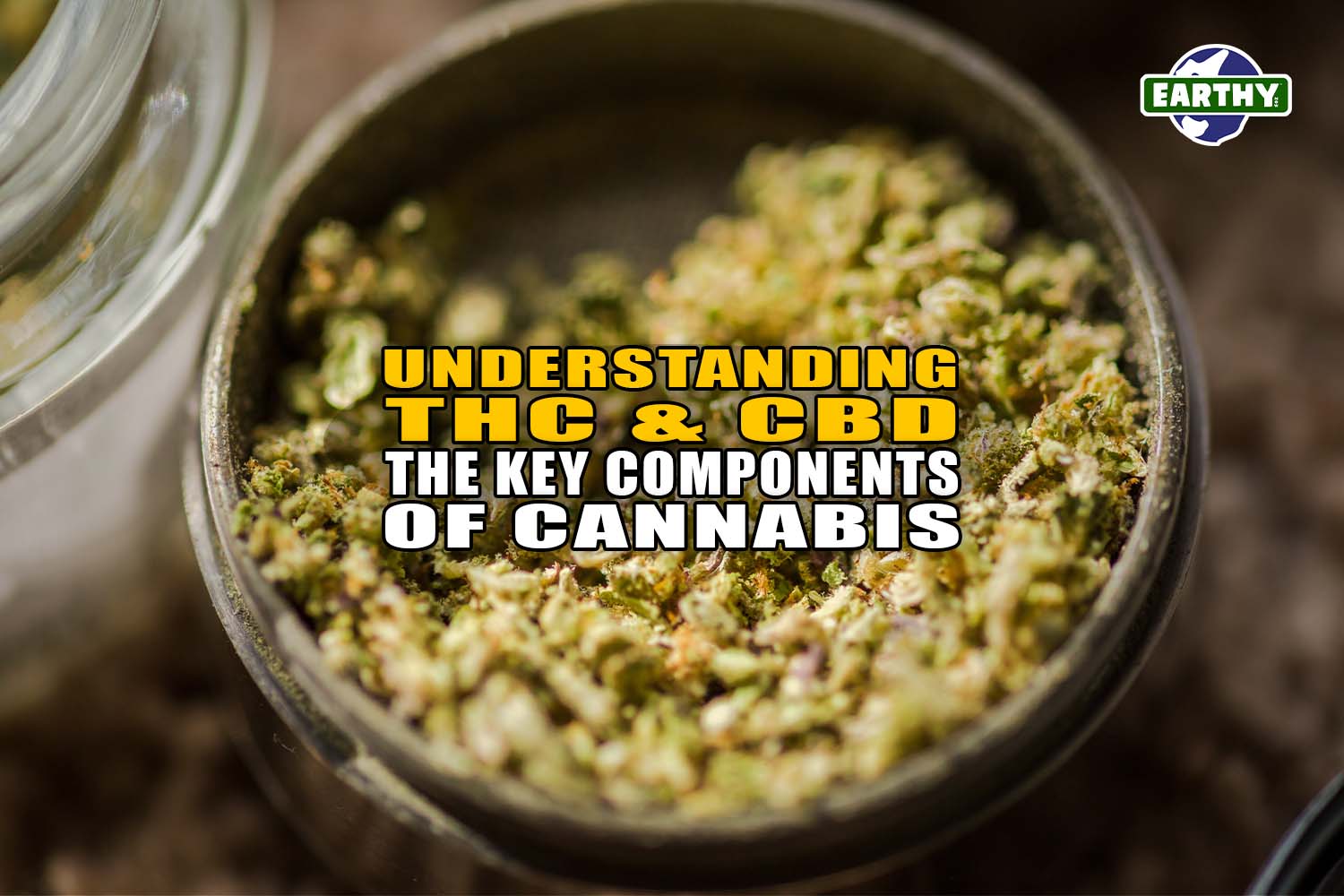Cannabis plants have been used for medicinal and recreational purposes for centuries [1]. But what has made the plant so useful and beneficial for so long? Primarily, the cannabinoids in the plant affect the body in various enjoyable ways. More specifically, the two most well-known cannabinoids in the cannabis plant are THC (tetrahydrocannabinol) and CBD (cannabidiol). Researchers continue to study both for their potential health benefits [2]. However, they differ greatly in their effects and legal status. This article explores the similarities and differences between THC and CBD, their wellness applications, and the legal landscape surrounding these compounds.
What is THC?
THC, or tetrahydrocannabinol, is the main psychoactive ingredient in the marijuana plant. Indeed, it produces the “high” associated with recreational cannabis use. Scientifically speaking, THC activates cannabinoid receptors in the brain, particularly the CB1 receptors, leading to psychoactive effects such as euphoria, relaxation, and altered sensory perception. However, THC can also cause side effects like anxiety, paranoia, and cognitive impairment for some, especially in high doses [2].
Researchers continue to study THC for its potential medical benefits. For example, ongoing studies seek to uncover its potential for pain relief, appetite stimulation, and nausea and vomiting caused by chemotherapy. As of now, only a handful of FDA-approved synthetic THC products have entered the market. These include Marinol and Syndros, which contain dronabinol (synthetic THC), and Cesamet, which contains nabilone (a synthetic substance similar to THC). Physicians sometimes prescribe these medications to treat nausea and vomiting caused by chemotherapy treatments [3].
What is CBD?
CBD, or cannabidiol, is another major compound found in cannabis plants. Unlike THC, CBD does not produce psychoactive effects, making it appealing for those seeking potential symptom relief without the high. Notably, CBD binds to different receptors in the endocannabinoid system, which helps regulate various bodily functions such as pain, mood, and immune response [2].
Many researchers report that CBD has a wide range of potential wellness benefits. However, scientists continue to debate its efficacy regarding its anti-inflammatory and analgesic properties, as well as pain relief. Thus, individuals interested in treating particular conditions with CBD should consult a healthcare professional for appropriate care. Moreover, theories that CBD can treat various mental health conditions, including anxiety, depression, and social anxiety disorder, have not been backed by the FDA. Thus, sufferers of mental health conditions should approach CBD with health provider guidance as well [4].
However, CBD has shown promise in treating a rare form of epilepsy. As a result of recent studies, the FDA approved the drug Epidiolex, prescribed for severe forms of epilepsy like Dravet syndrome [5].
Finding the Best Full-Spectrum CBD Gummies
Differences between THC and CBD
While THC and CBD share similar chemical structures, they have differing effects on the body. The main difference lies in their psychoactive properties. For example, THC induces mind-altering effects, while CBD is non-psychoactive. Therefore, CBD may be more appealing for a broader range of uses, including for those who need to avoid cognitive impairment [2].
Another key difference is their legal status. Under federal law, Delta-9 THC is classified as a Schedule I drug under the Controlled Substances Act, making it illegal at the federal level. However, state laws vary, with some states legalizing Delta-9 THC for medical and/or recreational use. In contrast, hemp-derived CBD products with 0.3% or less Delta-9 THC are legal under federal law. Even so, state laws may vary regarding CBD products [2].
Synergistic effects: the entourage effect
One of the most interesting aspects of THC and CBD is how they work together, a phenomenon known as the entourage effect. This effect suggests that the two compounds can enhance each other’s benefits. For instance, some users report that CBD may mitigate some of the potential adverse psychoactive effects of THC, making using cannabis more pleasant for some people [6]. However, others argue that CBD does not influence THC in this way.
How to Use CBG Oil for Great Results
Methods of consumption
Cannabis products come in various forms, each with its own advantages and considerations. For example, common methods of consumption include:
- Smoking and vaping: These methods provide rapid onset of effects but may be involved in adverse respiratory effects.
- Edibles and tinctures: These offer a longer duration of action and can take longer to take effect.
- Topicals and transdermal patches: These are used for localized relief [7].
When using cannabis products, it’s crucial to consider dosage and safety. For example, high doses of THC can lead to unwanted side effects. In contrast, most individuals can tolerate CBD even in large doses [8]. Even so, it’s important to consult a healthcare professional with any concerns or questions about how CBD or THC may affect you.
How to Use CBG Gummies: Helpful Tips
Legal and regulatory landscape
The legal status of THC and CBD varies widely across different regions. For example, marijuana, defined as cannabis with Delta-9 THC content above 0.3% is illegal under federal law in the United States. However, many state legislatures have passed laws permitting its medical or recreational use at higher THC levels. Conversely, hemp-derived CBD products are legal at the federal level, provided they contain 0.3% Delta-9 THC or less [9]. It’s important to keep in mind that the legal landscape continually evolves, with more research and changing state laws influencing regulations.
Can Legalization Lower the Carbon Footprint of Cannabis?
Choosing the right product
When selecting cannabis products, consumers should consider several factors, including the purpose of use, desired effects, and method of consumption. Moreover, it’s essential to read labels carefully to understand the THC and CBD content and to consult healthcare professionals for guidance, especially for those with underlying psychiatric or medical conditions or those taking drugs.
How Does Cannabis Consumption Affect Your Brain and Cognitive Functions?
Premium CBD and THC products delivered to your door
For cannabis enthusiasts seeking reliable, trustworthy sources of hemp-derived products, Earthy Now has something for everyone. These products are the industry’s cleanest and strongest, with only trace amounts of Delta-9 THC (no more than 0.3%). As always, Earthy Now provides the optimal balance of cannabinoids while ensuring high CBD and low Delta-9 THC levels. As a result, customers report various beneficial effects, from clear-headed alertness and energy to relaxation and more.
Explore these natural products from Earthy Now to boost overall wellness:
- CBD Flower
- Gummies
- Lozenges
- Tablets (THC Free!)
- Soothing Relief Lotion
- Soothing Relief Salve
- Oils
- Pet Products (THC Free!)
- Pre-Rolls
- Smokes
- Terpenes
Comparing Full-Spectrum, Broad-Spectrum, and CBD Isolate Gummies
Key takeaway: understanding the nuances of CBD and THC
THC and CBD are the key components of cannabis, each with unique properties and potential wellness benefits. Understanding the differences between these two compounds is crucial for making informed decisions about their use. As research continues to expand our knowledge of THC and CBD, their roles in treating various medical conditions and their place in society will likely continue to evolve.
In summary, while both THC and CBD offer significant benefits, they also present unique challenges and considerations. Whether for wellness or recreational use, understanding these compounds’ effects, legal status, and potential interactions is essential for safe and effective consumption.
Visit Earthy Now to browse a wide selection of popular high-CBD and low-THC products, all federally compliant!
Delta-9 THC Cigarettes: A New Trend?
Medical Disclaimer / Legal Disclaimer – Information is provided for educational purposes. It does not and is not intended to constitute legal advice or medical advice. We attempt to be accurate and up-to-date, but the legality of cannabinoids and the science of cannabis are evolving. The author is neither a legal professional nor a medical expert. Before buying or using any products, you should check with your local authorities and medical providers.
References
- History of Cannabis
- CBD vs. THC: What’s the Difference?
- Cannabis (Marijuana) and Cannabinoids: What You Need To Know
- Web MD: Health Benefits of CBD
- Epidiolex (Cannabidiol) Primer: Frequently Asked Questions for Patients and Caregivers
- What Is the Interaction Between CBD and THC?
- A Guide to Cannabis Consumption Methods
- Can You Take Too Much CBD?
- U.S. Cannabis Legalization Map





 Earthy Now
Earthy Now